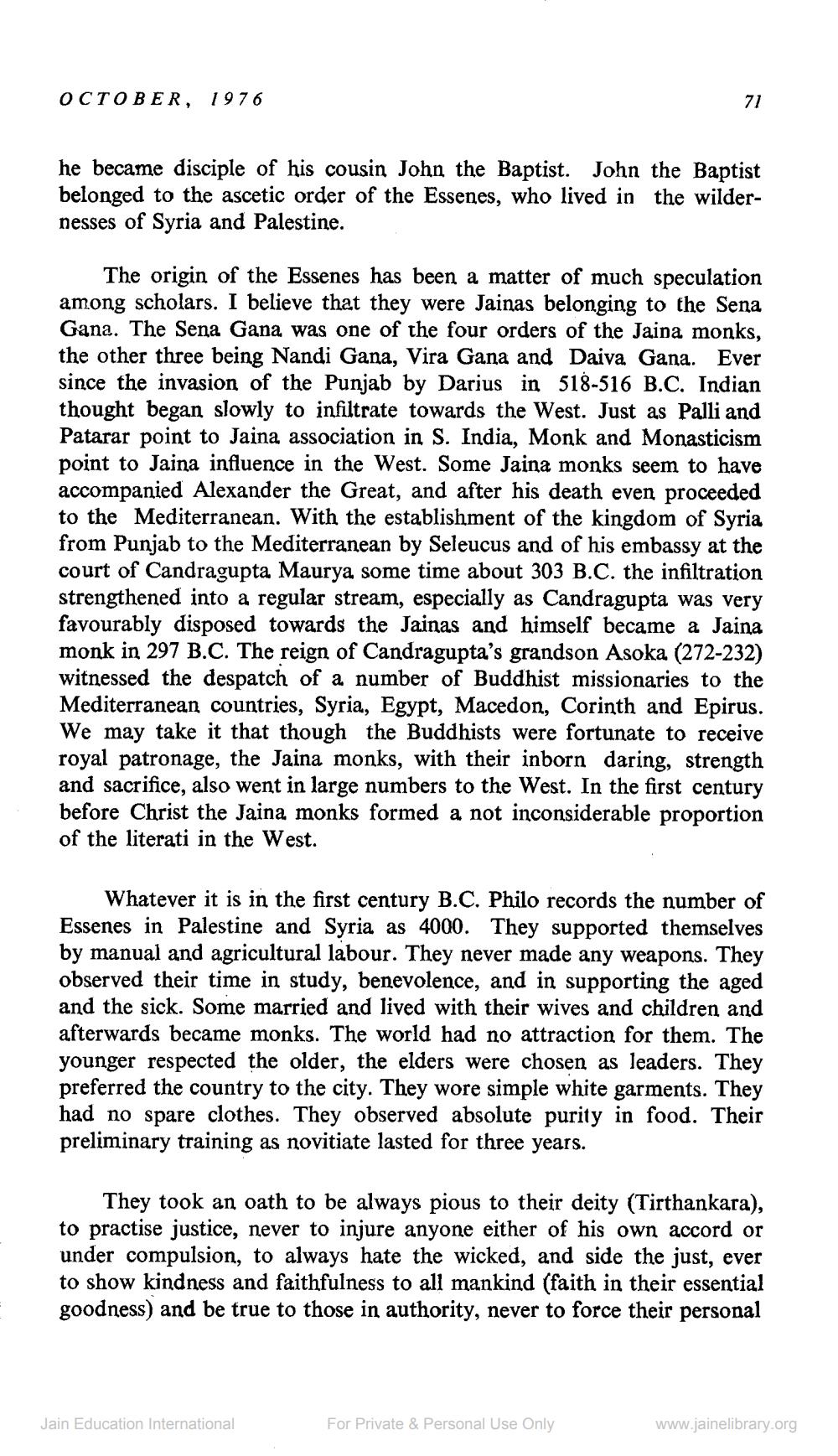________________
OCTOBER, 1976
he became disciple of his cousin John the Baptist. John the Baptist belonged to the ascetic order of the Essenes, who lived in the wildernesses of Syria and Palestine.
The origin of the Essenes has been a matter of much speculation among scholars. I believe that they were Jainas belonging to the Sena Gana. The Sena Gana was one of the four orders of the Jaina monks, the other three being Nandi Gana, Vira Gana and Daiva Gana. Ever since the invasion of the Punjab by Darius in 518-516 B.C. Indian thought began slowly to infiltrate towards the West. Just as Palli and Patarar point to Jaina association in S. India, Monk and Monasticism point to Jaina influence in the West. Some Jaina monks seem to have accompanied Alexander the Great, and after his death even proceeded to the Mediterranean. With the establishment of the kingdom of Syria from Punjab to the Mediterranean by Seleucus and of his embassy at the court of Candragupta Maurya some time about 303 B.C. the infiltration strengthened into a regular stream, especially as Candragupta was very favourably disposed towards the Jainas and himself became a Jaina monk in 297 B.C. The reign of Candragupta's grandson Asoka (272-232) witnessed the despatch of a number of Buddhist missionaries to the Mediterranean countries, Syria, Egypt, Macedon, Corinth and Epirus. We may take it that though the Buddhists were fortunate to receive royal patronage, the Jaina monks, with their inborn daring, strength and sacrifice, also went in large numbers to the West. In the first century before Christ the Jaina monks formed a not inconsiderable proportion of the literati in the West.
Whatever it is in the first century B.C. Philo records the number of Essenes in Palestine and Syria as 4000. They supported themselves by manual and agricultural labour. They never made any weapons. They observed their time in study, benevolence, and in supporting the aged and the sick. Some married and lived with their wives and children and afterwards became monks. The world had no attraction for them. The younger respected the older, the elders were chosen as leaders. They preferred the country to the city. They wore simple white garments. They had no spare clothes. They observed absolute purity in food. Their preliminary training as novitiate lasted for three years.
They took an oath to be always pious to their deity (Tirthankara), to practise justice, never to injure anyone either of his own accord or under compulsion, to always hate the wicked, and side the just, ever to show kindness and faithfulness to all mankind (faith in their essential goodness) and be true to those in authority, never to force their personal
Jain Education International
For Private & Personal Use Only
www.jainelibrary.org




